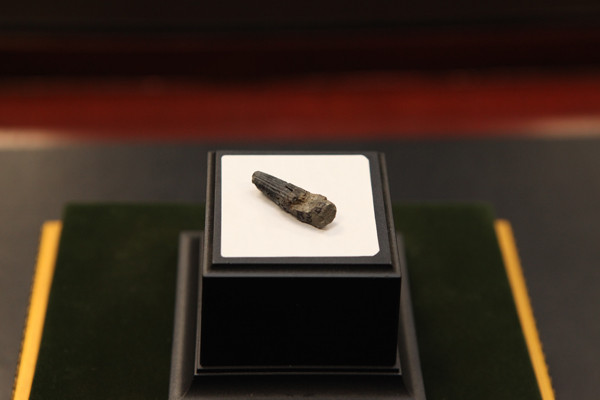New Fossil of Dinosaur Discovered in Malaysia

Palaeontologists at the University of Malaya have discovered what they say is the first known fossil of dinosaur to be found in Malaysia.
The researchers found the remains of dinosaur in the rural interiors of the Malaysian state of Pahang.
"We have started our collaboration and carried out field expeditions to search for potential dinosaur deposits in Malaysia since September 2012. Recently, we have successfully confirmed the presence of dinosaur remains (fossilised teeth) in Pahang," lead researcher Dr. Masatoshi Sone said in a statement.
One of the fossils, Sample UM10575, has been identified as a tooth of Spinosaurid theropod, the carnivorous dinosaur that evolved during the Late Jurassic and became abundant in the Early Cretaceous age.
The tooth fossil "develops fairly distinct carinae (front and rear edges) with serrations, typical to a tooth of a theropod (carnivorous dinosaur). Well-marked coarse ridges are developed on the surface of the tooth, and the surface bears micro-ornament (very fine sculptures); these characterise a spinosaurid tooth," Sone said.
The interior regions of Malaysia are known to have a wide distribution of Cretaceous (ca. 145–75 million years ago) sediments.
The fossil remains were found from sedimentary rock strata of late Mesozoic age, most likely Cretaceous, the researchers noted.
"It is expected that large deposits of dinosaur fossils still remain in Malaysia. We currently continue further research and hope to conduct more extensive field investigations that may disclose more significant finds," he added.
After this discovery, researchers fear destruction of the Cretaceous fossils-rich site due to illegal excavations as it happened in Thailand, Laos, and Mongolia.
"Alongside making the public announcement of this discovery, it is urgent to take measures for the protection and conservation of the present fossil site (and to make it accessible only to the qualified researchers)," Sone concluded.
© Copyright IBTimes 2025. All rights reserved.





















